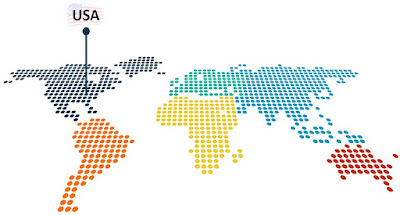Prof. dr hab. Henryk Zieliński is the head of the Department of Food Chemistry and Biodynamics of the Institute of Animal Reproduction and Food Research of the Polish Academy of Sciences (Olsztyn, Poland). His research group investigates the content of biologically active compounds in cereal raw materials, functional properties of cereals, pseudo-cereals (e.g., buckwheat), their milling products, and bakery products, including gluten-free ones. In 2013, Dr. Giménez-Bastida joined his laboratory to investigate the beneficial effects associated with the consumption of buckwheat-derived products. The results generated were published in an important number of scientific publications and presented in different international conferences. Dr. Giménez-Bastida and Prof. Zielinski have maintained their scientific (and personal) relation through these years. The publications of the PolyBiota project are the best example of this collaboration.
Friday, December 23, 2022
Professor Claus Schneider (Vanderbilt University)
Dr. Moisés Laparra Llopis
Thursday, December 22, 2022
Academy of Sciences of the Region of Murcia Award
Thanks to the EU-funded PolyBiota project, high school students of the IES Domingo Valdivieso in Mazarrón (Murcia, Spain) participated in the IDIES project working on the "In vitro evaluation of the effect of dietary polyphenols against angiogenesis in human aortic endothelial cells" under the supervision of Dr. Giménez-Bastida.
For several weeks, the students learned a wide range of cellular and molecular techniques (find a detailed description here). The results were presented in the form of poster and oral presentation in the VIII IDIES Conference.
After the evaluation of the different research studies presented, the Committee of the Academy of Sciences of the Region of Murcia awarded our investigation as one of the most outstanding works performed.
2022 Annual International Conference and Exhibition (Turkey)
Turkey was the venue for the last Conference in Functional Foods, Nutraceuticals, Natural Health Products, and Dietary Supplements co-organized by the International Society For Nutraceuticals and Functional Foods (ISNFF) and Tubitak MAM (within the H2020 - PhenolAcTwin project).
Prestigious researchers from all around the world attended this international conference and its differents events. It was kicked off by outstanding plenary talks, including the oral presentations by Paul Kroon (Quadram Institute; Norwich, Uk) or Francisco A. Tomás Barberán (CEBAS-CSIC; Murcia, Spain).
Beyond the scientific questions, the nice environment was an excellent opportunity to meet old friends and make new ones as well as to visit important historical and cultural attractions.
2022 - International Seminar (Lisbon)
NMS is an academic unit of Universidade NOVA de Lisboa that promotes scientific knowledge exchange between researchers from different disciplines. In July 2022, Dr. Ávila-Gálvez (postdoctoral student) from the group led by Claudia Nunes invited Dr. Giménez-Bastida to give a talk and share the results of the PolyBiota project.
Nice environment, good experience and, the most important, with outstanding scientists!
2022 - Science and Technology Week
 The Science and Technology Week is an attractive event aimed at interacting with the general public to make them into active participants in activities related to science.
The Science and Technology Week is an attractive event aimed at interacting with the general public to make them into active participants in activities related to science.
In 2022, the Seneca Foundation of the Región de Murcia organized the first post-COVID Science week and CEBAS-CSIC was there with numerous scientific activities: plant physiology, plant foods, food security, microorganisms... Dr. Giménez-Bastida did mark the days of the celebration of this event in the PolyBiota workplan as a must do activity.
Through different games, including crosswords and letter soups, Dr. Giménez-Bastida interacted with students and the
general public discussing about plant foods, bioactive compounds and health. Practising citizien science is, with no doubts, one of the most rewarding activities for researchers.
Highly Cited Papers from PolyBiota
The editors from Nutrients (ISSN: 2072-6643) contacted Dr. Giménez-Bastida to inform that papers published within the PolyBiota project are attracting the attention of researchers around the world. As a result, the publication "Caffeic acid Modulates Processes Associated with Intestinal Inflammation" has been selected as one of the Hot Topic Articles in Nutrients.
This recognition has been possible thanks to the good job of researchers from different institutions, including CEBAS-CSIC, Institute of Animal Reproduction and Food Research (Polish Academy of Science), University of Warmia & Mazury and IMDEA Food. The PolyBiota project invites you to read this interesting open access manuscript to see how our investigations contribute to give a step forward at the scientific level in the field of food science and technology.























